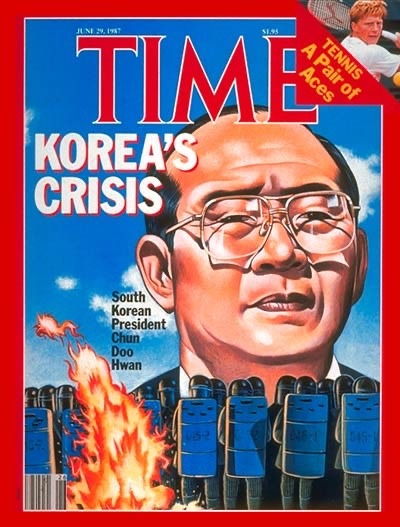#chun doo hwan
Text
A Reminder That We Are Human: ‘Human Acts’ by Han Kang Review
by Isobelle Cruz [May 21, 2023]
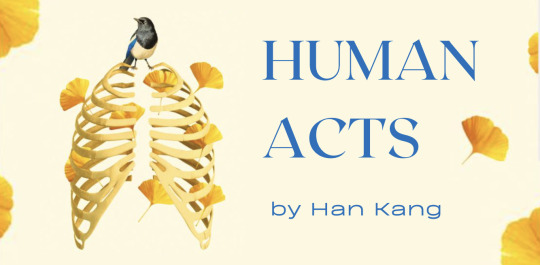
I’ve been hesitant to open up my laptop lately, afraid that I had lost it in me to write a really good article, not in terms of how many likes I receive, but on how much I enjoy the process of making it. My recent works, I admit, have felt passionless and forced for the sake of keeping my blog alive. But this is different. I devoured “Human Acts” by Han Kang over the course of one weekend—my eyes rarely drifting from its pages.
I’d never encountered an interest in the author’s works before, but once I stepped foot in the bookstore, I was suddenly drawn to its cover; simple and clean, silencing the world that surrounded me into muffled echoes.

“Gwangju Uprising” scene in Saedeuldo Sesangeul Teuneunguna at the Yeongwoo Theatre, 1988 [Image Source: Yeongwoo Mudae]
Her lips move, but no sound comes out. Yet Eun-sook knows exactly what she is saying. She recognizes the lines from the manuscript, where Mr. Seo had written them in with a pen. The manuscripts she’s typed up herself, and proofread three times.
Page 101 of Human Acts
The book features the perspectives of seven characters, one of them being an editor in 1985. Eun-sook’s chapter shows her struggle against censorship and how the company overcomes this, still able to deliver the crossed-out lines of the censors through chilling imagery. Han Kang’s writing is delivered almost in the same feels as the play tackled in her book; quiet, slow, but enough to tell the story.
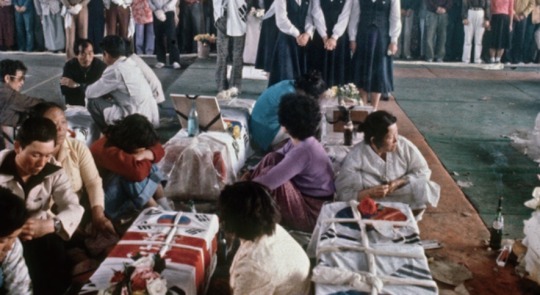
Gym turned mortuary in May 1980. [Image Source: Robin Moyer, Korea JoongAng Daily]
Another perspective that drew my attention closer than the others was of The Boy’s Friend, Jeong-dae. The words of the dead were briefly featured in the book; faceless spirits hovering over their bodies and watching as others live on, unable to do anything but watch.
If I could escape the sight of our bodies, that festering flesh now fused into a single mass, like rotting carcass of some many-legged monster. If I could sleep, truly sleep, not this flickering haze of wakefulness. If I could plunge headlong down to the floor of my pitch-dark consciousness.
Page 56 of “Human Acts”
It was depressing, and made me conscious of the body I still have control over—a blessing that I often take for granted.
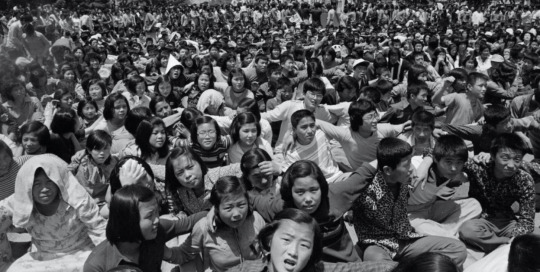
Students on the streets of Gwangju, 1980 [Image Source: Lee Chang-seong, May 18 Memorial Foundation]
Is it possible to bear witness to the fact that of a foot-long wooden ruler being repeatedly thrust into my vagina, all the way to the back wall of my uterus? To a rifle butt bludgeoning my cervix? To the fact that, when the bleeding wouldn’t stop and I had gone into shock, they had to take me to the hospital for a blood transfusion?
Page 164 of Human Acts
Human Acts is flinchingly explicit and gory. It tells the stories of victims from different angles, some of which I would forget to consider if I had not opened this book.
It disturbs me to display these photos on here, but I believe that if words are not enough to deliver chills to the blinded eyes of people, photographs will.
The kids in the photo aren’t lying side by side because their corpses were lined up like that after they were killed. It’s because they were walking in a line.
Page 133 of Human Acts
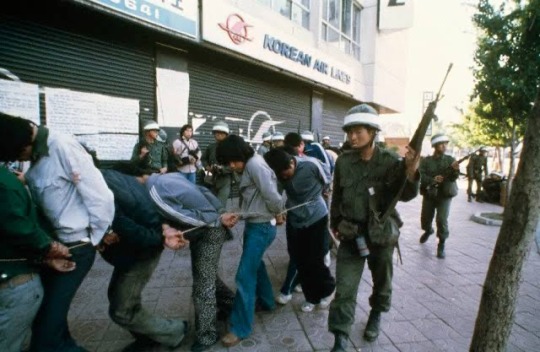
Whether you read this in the rain, or at the beach where life is supposed to be happy, a strike of pain will stay in the back of your chest, the images of agony haunting you even in bed.
Human Acts truly opened my mind much more than the other books I’ve read that spit out facts and statistics, so much so, that I am driven away from what matters most—feeling and sympathizing with the victims. Most books I’ve encountered focus solely on hating the dictator that I finish them feeling sort of empty, that I am the same person as I was when I started the book. But that is not the case with Han Kang’s third novel. It reminded me that I am human, and how much my life should be valued.
#han kang#human acts#south korean literature#korean history#asian literature#asian author#asian history#martial law#chun doo hwan#gwangju massacre#gwangju uprising#May 18
8 notes
·
View notes
Video
Ex-military dictator’s grandson apologizes to victims in Gwangju
https://www.koreaherald.com/view.php?ud=20230331000453
https://en.wikipedia.org/wiki/Gwangju_Uprising
Chun Woo-won, a grandson of the late former military dictator President Chun Doo-hwan, officially apologized to the bereaved families of the victims of the May 18 Gwangju Democratic Uprising and to the citizens of Gwangju.
At around 10 a.m. on Friday, Chun Woo-won, the second son of the ex-dictator’s son, Chun Jae-yong, along with organizations related to the victims, held a meeting with the bereaved families and victims at the reception hall on the first floor of the May 18th Memorial Cultural Center in Seo-gu, Gwangju.
The junior Chun met with people, including Kim Gil-ja, the mother of the late Moon Jae-hak, a student militia student, Kim Tae-soo, who was shot in front of Gwangju prison on the evening of May 21 and suffered trauma for a long time, and Kim Kwan, a victim of assault and detention.
The uprising began on May 18, 1980 as a response to a coup d'etat which solidified Chun Doo-hwan's military regime over South Korea. The military arrested opposition leaders, closed all universities, banned political activities and censored the press. It also violently suppressed the uprising, killing and torturing hundreds of people.
The junior Chun said his grandfather, Chun Doo-hwan, was “a criminal, a murderer,” and a member of the family who “committed a very serious crime” during the uprising. He thanked people who gave “such a precious opportunity to an ugly sinner like me.”
Expressing his sincere apology for coming so late, he said, “I know there are many victims. I am sorry to the extent that I recognize that my coming has hurt you, and thank you for giving me a precious opportunity.”
“Despite so much sacrifice and suffering from the Japanese colonial period to the military dictatorship, my grandfather, Chun Doo-hwan, failed to promote the development of democracy and instead allowed democracy to flow in reverse,” he said.
After finishing the press conference, Chun visited the memorial and sublimation space located in the May 18th Memorial Cultural Center, and moved to the May 18th National Cemetery in Gwangju at around 11:30 a.m. to pay his respects to those who lost their lives during the uprising.
#tiktok#Gwangju#Korea#south korea#protest#1980s#Chun Doo-hwan#forgiveness#Gwangju Democratic Uprising#history#article
21 notes
·
View notes
Text
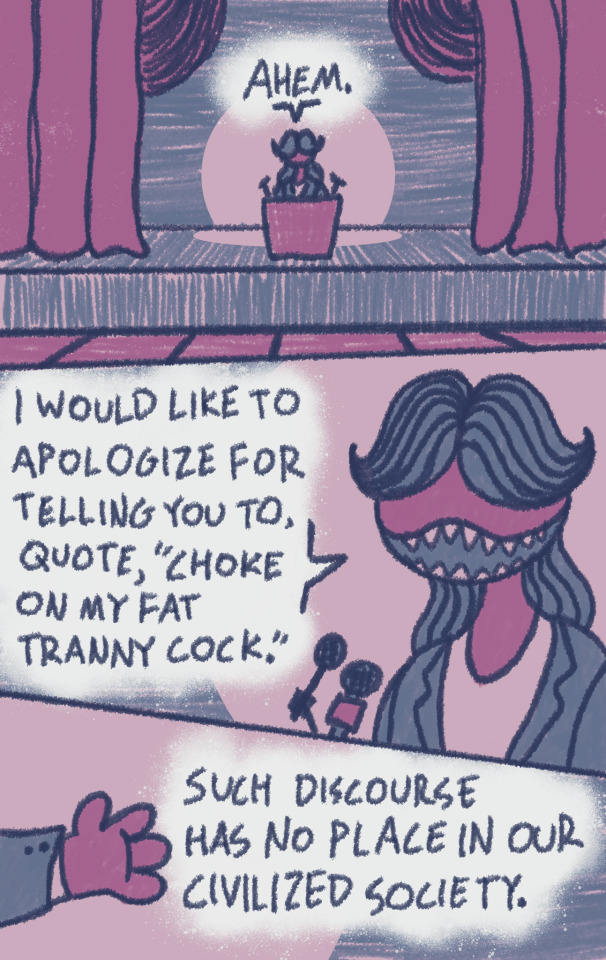
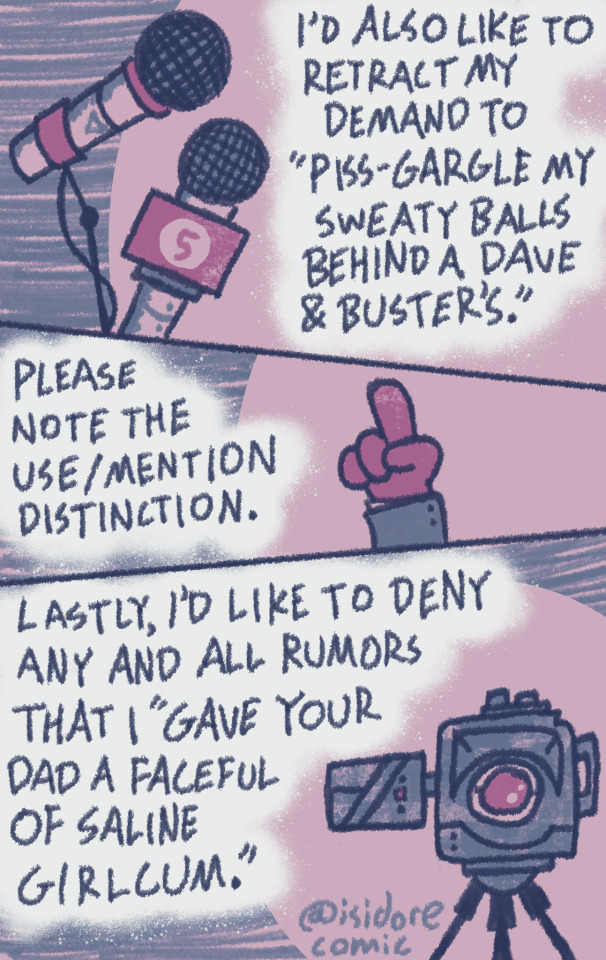
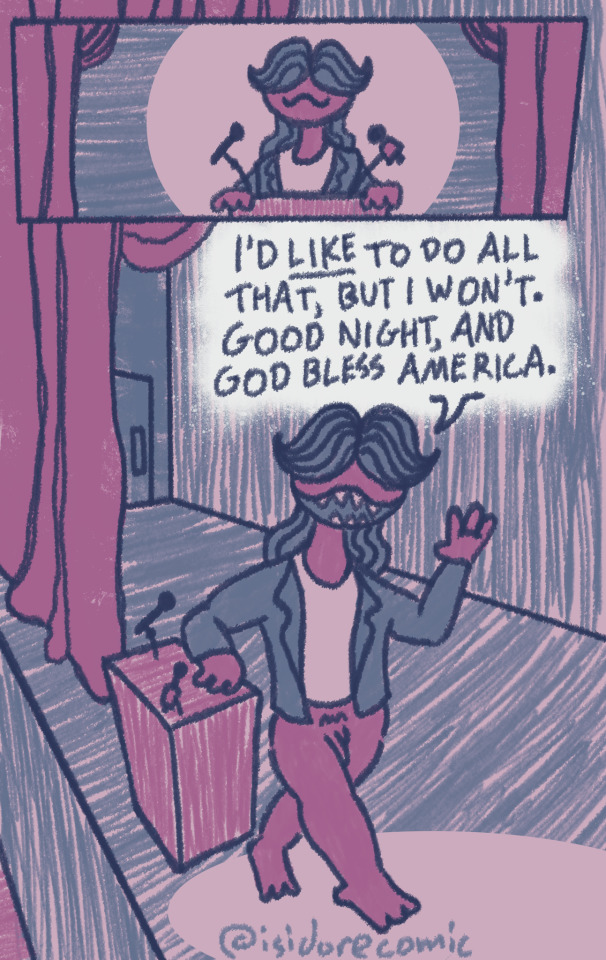
"The Apology," inspired by Yoo Byung-jae's "I apologize for calling Chun Doo-hwan a son of a bitch" routine and more generally by Bloom County et al
2K notes
·
View notes
Text
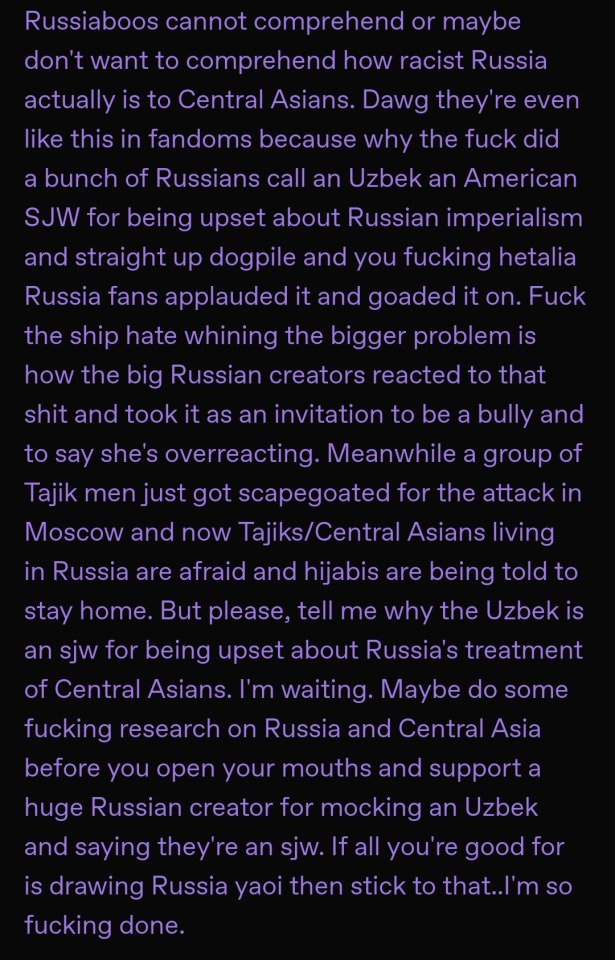
I've been considering making this post for a while but hesitated since I don't wanna beat a dead horse.
I'd like you to look at this post looking back at the Andijan massacre. What started as people protesting issues like distribution of gas, electricity, and other human needs and rights ended in a bloodbath. A cousin of mine told me schools taught it as "the national guard protecting civilians from Islamist terrorists."
I'd also like you to look at this paper by the Human Rights Watch on the torture and persecution of Uzbek Muslims like me during Islam Karimov's 20 years of dictatorial rule. Even Uzbek Muslims outside of Uzbekistan weren't safe. Multiple family friends of mine were randomly tackled to the ground and arrested by Korean Police on accounts of "domestic terrorism" in Uzbekistan, and some were only released about 5 years ago.
You weren't allowed to wear hijabs(even in Islamic universities), openly pray, read the Quran, or do anything religious. Someone would always be there watching to report you.
I wasn't allowed to go outside by myself around my neighborhood due to Uzbek government agents kidnapping the children of Uzbek diaspora abroad. I wasn't allowed to wear a hijab until after we went to Uzbekistan 2 years after Karimov's regime ended, and we made sure it was safe there and back. I wasn't even allowed to visit the country to see my relatives for almost a decade because of the crackdown on Uzbek Muslims.
When Uzbekistan was colonized by Russia as the Uzbek SSR and even before then as Turkestan, Russia made sure to stamp out religion entirely. They killed off scholars and poets like Cholpon, who wrote about Uzbek self-determination and praised religious texts. Uzbekistan's first leadership since its independence carried on with this policy, with Russian colonial values ingrained into them.
As for Korea, our partition was opposed by the whole peninsula. When Jejuans protested the US-UN backed elections, it ended in 10% of Jeju's population being killed by joint US-Korean forces. Though the South Korean Government apologized for the first time recently, the US stays silent. What a surprise. The bodies of these Jejuans were buried in mass pits and had the Jeju Airport built on top of it.
The US still fails to apologize for the No Gun Ri Massacre, in which the US Army murdered about 300 Korean villagers despite knowing they were civilians and therefore not targets. The US also indiscriminately bombed North Korea with more bombs than they had in the Pacific Theater in World War 2, martyring almost 2 million Koreans.
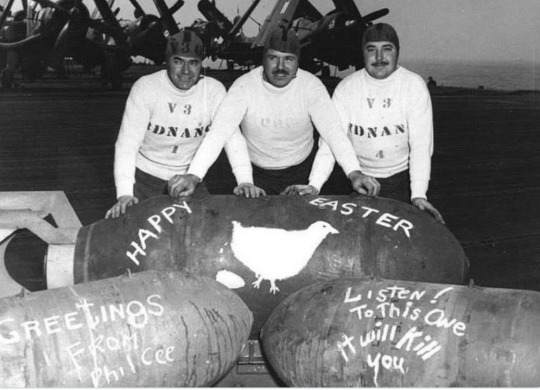
After the Korean War followed almost 30 years of dictatorship by Syngman Rhee, then a military junta, then Park Chung Hee and Chun Doo Hwan. During this time, university students protesting the dictatorial rule established by the US were arrested as "anti communists," and be tortured repeatedly, sometimes even until death.
Though the Seodaemun Prison is known for being Japan's colonial prison where they arrested independence activists, the Korean dictatorships used it to arrest people in favor of democracy.
The Namyeong-Dong Anti-Communist Investigation Office was a similar prison, in which one of the floors had extremely thin, narrow windows to avoid prisoners from escaping. Park Jong Cheol, a Seoul National University student who was protesting against Korea's military dictatorship at the time, was incarcerated here and routinely tortured. He eventually died due to water torture.
The Gwangju Massacre was a protest held by many activists against Chun Doo Hwan's dictatorial rule, which came about as he staged a coup and successfully overthrew the previous government. As they called for democracy, Chun Doo Hwan brought the national army, who fired upon, killed, and raped the protesters. Chun Doo Hwan was never held responsible for his crimes before he died, and his grandson recently apologized to the victims and their loved ones. It was found that the US approved Chun Doo Hwan's plans to use armed forces on the protesters in Gwangju.
Though the Gwangju Massacre is taught about in Korea, much of the US involvement and responsibility of the horrors of the dictatorship is left out.
The US does not allow Korea to produce its own nuclear arsenal, allowing Korea to rely entirely on the US for nuclear support. Additionally, the existing presence of the USFK in Korea and their joint training sessions with the ROK army further provokes North Korea and therefore gives the US a "justification" to maintain its military presence in Korea.
Growing up I was taught where to look for nearby nuclear shelters. We visited the War Memorial of Korea multiple times, and air raid sirens are rare but are happening more often recently.
This, along with the added danger of living as Uzbek diaspora outside of Uzbekistan as Muslims.
So when I say "please respectfully depict Russia and the US when it comes to the Cold War in a way that does not center them entirely" and "please keep the gravity of their actions in mind as you write them; Hetalia does not exist in an apolitical vacuum,"
and I am met with "mature adults" telling me that "they're just characters," or
"i'm the one ruining the fandom," or
"block and move on," or
"i love russia and america cold war!!!" or
"you're crazy" or
"moralf*g" or
"someone's sensitive"
and especially from russian artists who call me an "American SJW." russians calling me an uzbek overly sensitive for asking that they portray their country a little more respectfully to the victims of their colonialism. yeah that's completely normal
you are normalizing centering discussions about the Cold War to the imperial core, and then having nothing of substance to say about and being absolutely insensitive towards someone who's life has been and still are dictated by these imperial forces, and even harrassing them.
where's the "block and move on" mentality you prided yourselves for?
this fandom hasn't changed since the 2010s. it's just more quiet in the way it marginalizes victims of colonialism.
oh, and that person who told me to "block and move on, sister!!!" when it comes to me explaining myself as an uzbek-korean muslim?
you're not one to talk. 네가 뭘아는데 ㅅㅂ새끼야
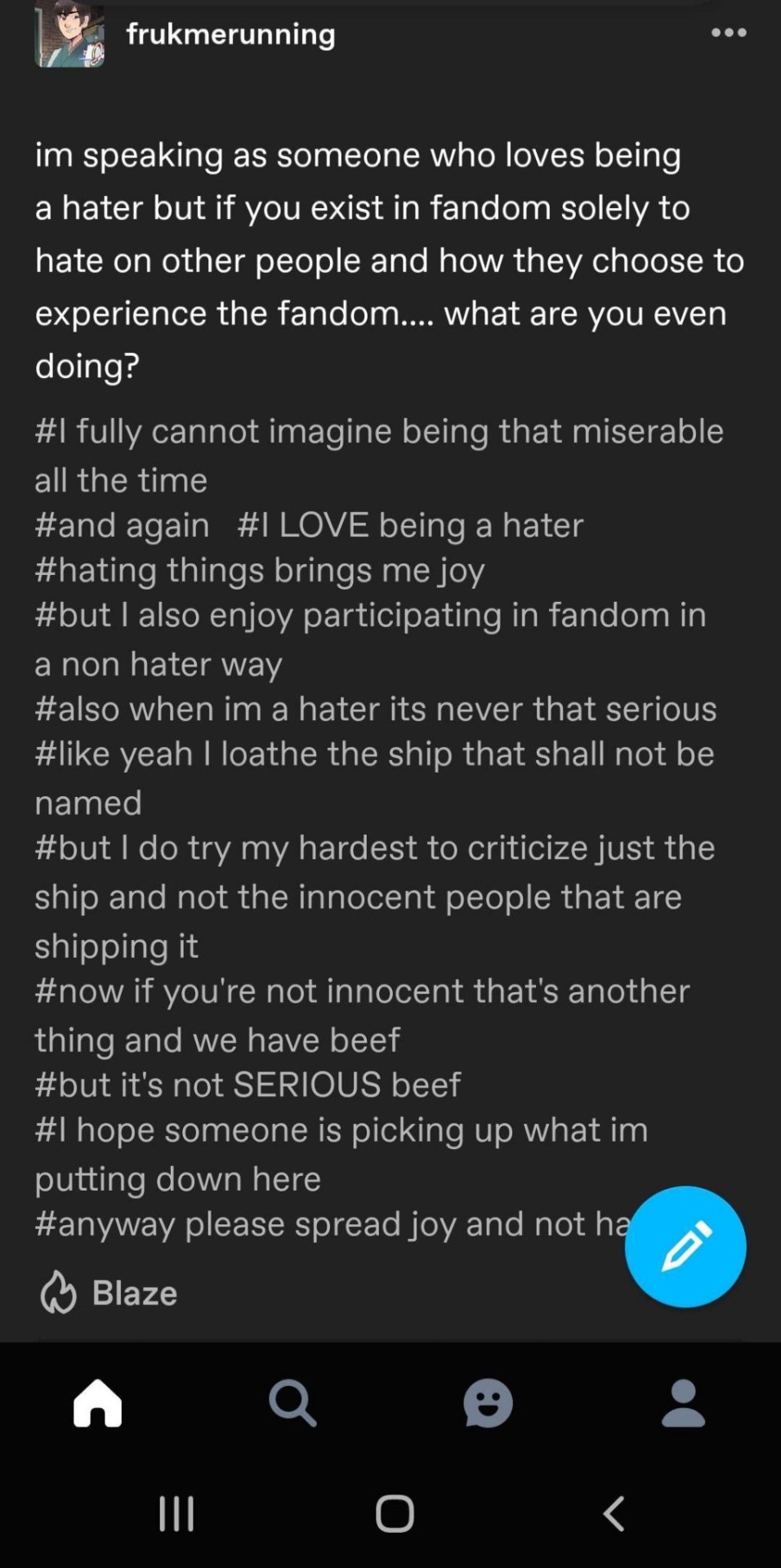
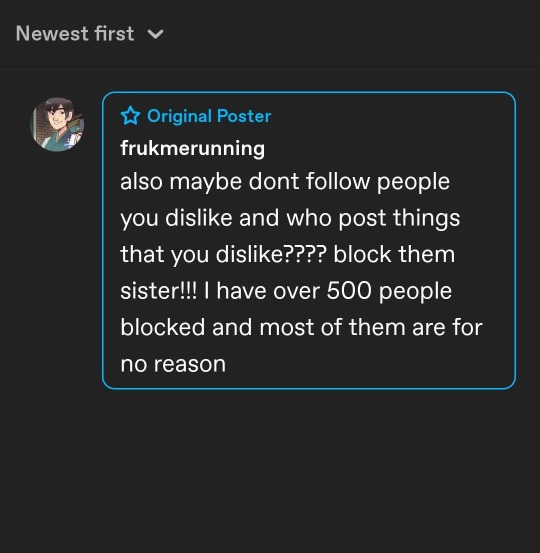
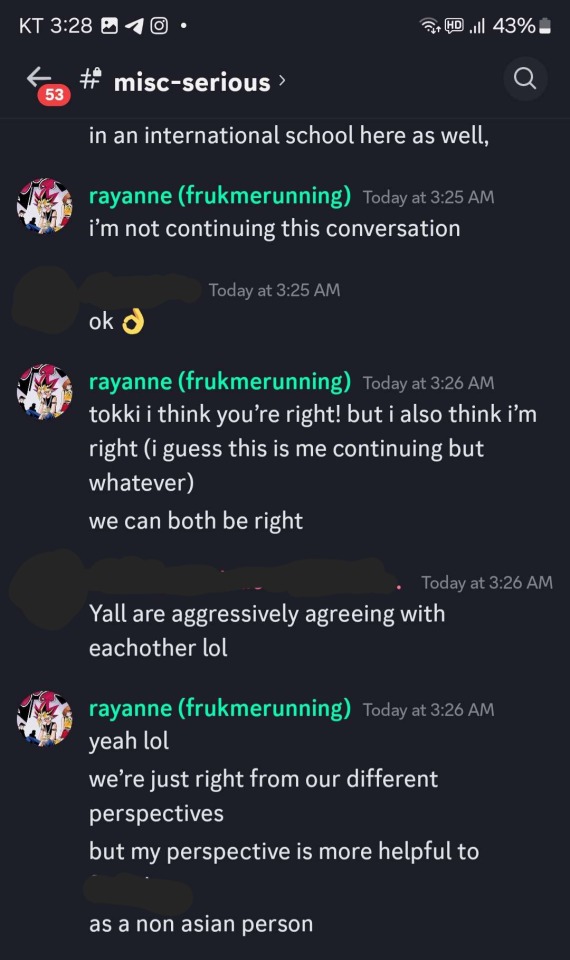


#hetalia fandom#vent#disk horse#i cant wait to have a barrage of insults thrown at me again ♥️#you need to go get your brain chemistry checked i think#hetalia#for those of you who comforted me during this time thank you all so so much#my mental health severely declined that week#i'm so grateful to have you as friends
39 notes
·
View notes
Photo
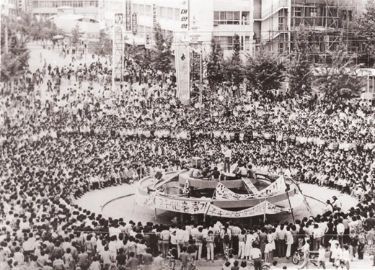
On this day, 18 May 1980, workers and students in Gwangju, South Korea, rose up against their brutal US-backed dictator, Chun Doo-hwan. Peaceful protesters were fired upon, with many shot and others beaten and stabbed to death by paratroopers. This sparked an uprising across the city, as local residents raided local armouries and police stations, seized weapons and eventually succeeded in driving out government troops. Workers and locals then took control of the city, running it collectively for several days, until paratroopers invaded once more and bloodily suppressed the rebellion, killing hundreds. Though unsuccessful in meeting its immediate goals, the uprising contributed to the end of decades of dictatorship late in the 1980s. We spoke with participants in the rebellion for our podcast episodes 53-56: https://workingclasshistory.com/podcast/e53-the-gwangju-uprising-1980/ https://www.facebook.com/photo.php?fbid=628119062694646&set=a.602588028581083&type=3
190 notes
·
View notes
Text
5월 / May
1일 - 근로자의 날: Labor Day (also called 노동절; there are 2 different words for "worker"); this is not a red day but is a paid holiday for people who count as "workers" (the laws are very confusing and there are articles every year about who gets the day off/paid extra)
5일 - 어린이날: Children's Day; it's a red day so kids can have a day off from school and have fun
6일 - 입하: Ipha, one of the 24 seasonal divisions; this is when summer begins
8일 - 어버이날: Parents Day (not a red day, kids give flowers/gifts to parents)
15일 - 스승의 날: Teacher's Day (not a red day, students give gifts/letters to their teacher(s) but the anti-bribery laws are meant to stop people from doing too much...)
18일 - 5.18민주화운동기념일: Anniversary of the May 18 Democratization Movement (aka the Gwangju Uprising); this is another incredibly important event in the history of Korean democracy. Residents of Gwangju protested the military dictatorship of Chun Doo-Hwan (who became the 5th president), and the government's violent suppression of the protests turned it into an armed uprising. It lasted from May 18-27, 1980 and there were an estimated 600-2,300 victims. The gov. established the day of commemoration in 1997, but conservatives and right-wing groups often deny the events. (In more recent news, the grandson of Chun Doo-hwan apologized for his grandfather's actions and particularly his role in the massacre in Gwangju.)
21일 - 소만: Soman, one of the 24 seasonal divisions; this is when plants are growing and rice planting begins
27일 - 부처님 오신날 (4.8 음력): Buddha's birthday (lunar calendar 4.8), temples do special celebrations and there are lantern decorations up around neighbors
29일 - 대체공휴일: alternative holiday; Buddha's birthday is on a Saturday this year, so the following Monday is taken off as a red day instead~
17 notes
·
View notes
Text
The Ajeosshi has been wanting to see 서울의봄 (English title: 12.12 - The Day. Why?? The Korean title 'Seoul Spring' was so much better). It's a film about the 1979 military coup by Chun Doo Hwan, following the assassination of dictator Park Chung Hee. In the film he is, for reasons unknown to me (libel avoidance??) renamed Chun Doo Gwang, but nonetheless, the film makers spent a lot of time and money making lead actor Hwang Jung Min look just like the real Chun Doo Hwan 🤷♀️
Yesterday was the Ajeosshi's day off so he insisted on going to see it, even though he was sick. Like, can barely stay standing without looking utterly miserable sick. We should not have bothered. Since the Ajeosshi likes this genre, I have seen many Korean political/historical thrillers based on actual events (mostly starring the same few actors, heh) and this was by far the worst. The actors are skilled people and the technical folks had a lot of fun making Seoul look like it did in 1979, but it was just so formulaic and BORING. Eeeeendless scenes of men in military uniforms smoking and shouting at each other. Repeated split screens to show us how the enemy was listening in on the good guys. Crass attempts to make 'heroic' moments. Yawn. Why drag it out? Everyone in Korea knows exactly how it will end.
The role of Jung Woo Sung is to be heroic. Because that's apparently the only role he ever plays. (Seriously, can someone point me at anything where he played against type?). Dull.
The (very brief) role of women was to serve the tea and worry about your man. If you get to say a line, it must be delivered in a soft, childish voice :/
I got a good workout from all my clock watching and eye rolling.
4 notes
·
View notes
Text
Events 5.17 (after 1970)
1973 – Watergate scandal: Televised hearings begin in the United States Senate.
1974 – The Troubles: Thirty-three civilians are killed and 300 injured when the Ulster Volunteer Force (UVF) detonates four car bombs in Dublin and Monaghan, Republic of Ireland.
1974 – Police in Los Angeles raid the Symbionese Liberation Army's headquarters, killing six members, including Camilla Hall.
1977 – Nolan Bushnell opened the first Chuck E. Cheese's Pizza Time Theatre (later renamed Chuck E. Cheese) in San Jose, California.
1980 – General Chun Doo-hwan of South Korea seizes control of the government and declares martial law in order to suppress student demonstrations.
1980 – On the eve of presidential elections, Maoist guerrilla group Shining Path attacks a polling location in Chuschi (a town in Ayacucho), starting the Internal conflict in Peru.
1983 – The U.S. Department of Energy declassifies documents showing world's largest mercury pollution event in Oak Ridge, Tennessee (ultimately found to be 4.2 million pounds [1.9 kt]), in response to the Appalachian Observer's Freedom of Information Act request.
1983 – Lebanon, Israel, and the United States sign an agreement on Israeli withdrawal from Lebanon.
1984 – Prince Charles calls a proposed addition to the National Gallery, London, a "monstrous carbuncle on the face of a much-loved and elegant friend", sparking controversies on the proper role of the Royal Family and the course of modern architecture.
1987 – Iran–Iraq War: An Iraqi Dassault Mirage F1 fighter jet fires two missiles into the U.S. Navy warship USS Stark, killing 37 and injuring 21 of her crew.
1990 – The General Assembly of the World Health Organization (WHO) eliminates homosexuality from the list of psychiatric diseases.
1992 – Three days of popular protests against the government of Prime Minister of Thailand Suchinda Kraprayoon begin in Bangkok, leading to a military crackdown that results in 52 officially confirmed deaths, hundreds of injuries, many disappearances, and more than 3,500 arrests.
1994 – Malawi holds its first multi-party elections.
1995 – Shawn Nelson steals an M60 tank from the California Army National Guard Armory in San Diego and proceeds to go on a rampage.
1997 – Troops of Laurent-Désiré Kabila march into Kinshasa. Zaire is officially renamed Democratic Republic of the Congo.
2000 – Arsenal and Galatasaray fans clash in the 2000 UEFA Cup Final riots in Copenhagen
2004 – The first legal same-sex marriages in the U.S. are performed in the state of Massachusetts.
2006 – The aircraft carrier USS Oriskany is sunk in the Gulf of Mexico as an artificial reef.
2007 – Trains from North and South Korea cross the 38th Parallel in a test-run agreed by both governments. This is the first time that trains have crossed the Demilitarized Zone since 1953.
2010 – Pamir Airways Flight 112 crashes in Afghanistan's Shakardara District, killing 44.
2014 – A military plane crash in northern Laos kills 17 people.
0 notes
Text
Final Major Project - Thoughts 16
Protest Songs
Among social movements that have an associated body of songs are the abolition movement, prohibition, women's suffrage, the labour movement, the human rights movement, civil rights, the Native American rights movement, the Jewish rights movement, disability rights, the anti-war movement and 1960s counterculture, art repatriation, opposition towards blood diamonds, abortion rights, the feminist movement, the sexual revolution, the LGBT rights movement, animal rights movement, vegetarianism and veganism, gun rights, legalisation of marijuana and environmentalism.
Martin Luther King Jr. described the freedom songs this way: "They invigorate the movement in a most significant way... these freedom songs serve to give unity to a movement."
EXAMPLE IN EAST-ASIA
China
Chinese-Korean Cui Jian's 1986 song "Nothing to My Name" was popular with protesters in Tiananmen Square.
Chinese singer Li Zhi made references to the Tiananmen Square massacre in his songs and were subsequently banned from China in 2019. Three years later, during the anti-lockdown protests in China, this was used as a protest song across YouTube.
Hong Kong
Hong Kong rock band Beyond's "Boundless Oceans Vast Skies" (1993) and "Glory Days" (光輝歲月) (1990) have been considered as protest anthems in various social movements.
During the 2019–20 Hong Kong protests, Les Misérables' "Do You Hear The People Sing" (1980) and Thomas dgx yhl's "Glory to Hong Kong" (2019) were sung in support of the movement. The latter has been widely adopted as the anthem of these protests, with some even regarding it as the "national anthem of Hong Kong".
Philippines
From the revolutionary songs of the Katipunan to the songs being sung by the New People's Army, Filipino protest music deals with poverty, oppression as well as anti-imperialism and independence. A typical example was during the American era, as Jose Corazon de Jesus created a well-known protest song entitled "Bayan Ko", which calls for redeeming the nation against oppression, mainly colonialism, and also became popular as a song against the Marcos regime.
During the 1960s, Filipino protest music became aligned with the ideas of Communism as well as of revolution. The protest song "Ang Linyang Masa" came from Mao Zedong and his Mass Line and "Papuri sa Pag-aaral" was from Bertolt Brecht. These songs, although Filipinized, rose to become another part of Filipino protest music known as Revolutionary songs that became popular during protests and campaign struggles.
South Korea
See also: Music of South Korea and Korean protest songs
Commonly, protest songs in South Korea are known as Minjung Gayo (Korean: 민중 가요, literally "People's song"), and the genre of protest songs is called "Norae Undong", translating to the literal meaning "song movement". The starting point of Korean protest songs was the music culture of Korean students movements around 1970.[66] It was common in the 1970s~1980s, especially before and after of the June Democracy Movement in 1987, and associated with against the military governments of presidents Park Chung Hee and Chun Doo Hwan reflecting the will of crowd and voices of criticism of the day. From the middle of the 1990s, following the democratisation of South Korea, Korean protest songs have lost their popularity.
Taiwan
"Island's Sunrise" (Chinese: 島嶼天光) is the theme song of 2014 Sunflower Student Movement in Taiwan. Also, the theme song of Lan Ling Wang TV drama series Into The Array Song (Chinese: 入陣曲), sung by Mayday, expressed all the social and political controversies during Taiwan under the president Ma Ying-jeou administration.
Thailand
See also: Phleng phuea chiwit
In Thailand, protest songs are known as Phleng phuea chiwit ("songs for life"), a music genre that originated in the '70s, by famous artists such as Caravan, Carabao, Pongthep Kradonchamnan and Pongsit Kamphee.
1 note
·
View note
Text
12esima: H. Kang, Atti umani, Adelphi
Da Silvestra Sbarbaro riceviamo la recensione di Atti umani di Han Kang.
Ecco la recensione di Silvestra.
Una tragedia sconosciuta
Nel dicembre del 1979 Chun Doo-hwan con un colpo di stato (il secondo nel giro di un anno) prese il potere in Corea del Sud instaurando nel paese una feroce dittatura. Seguirono manifestazioni, soprattutto da parte di insegnanti e giovani studenti che furono…
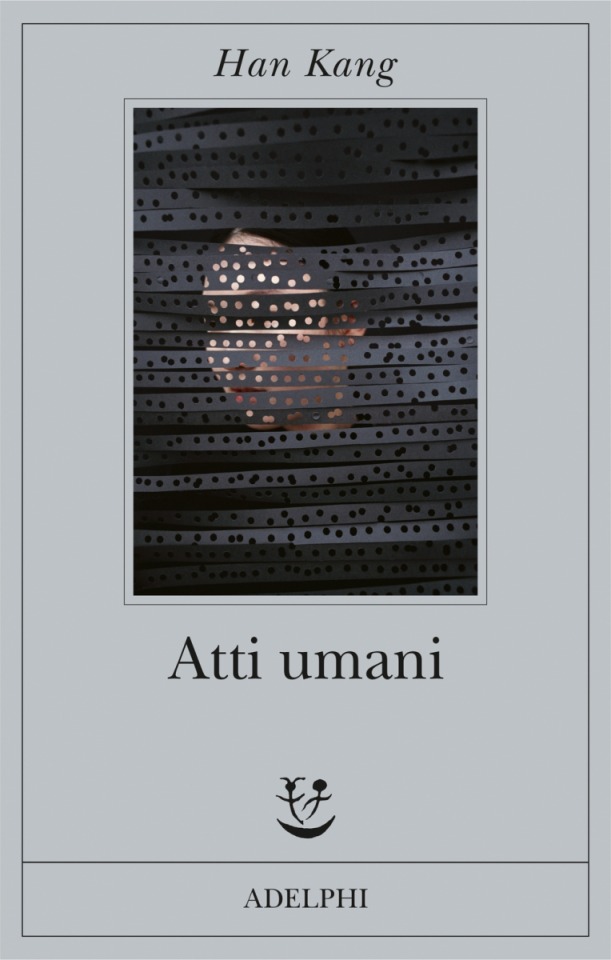
View On WordPress
#adelphi#atti umani#corea#corea del sud#dittatura#leggere#letteratura#lettori#lettrici#repressione#romanzi#silvestra sbarbaro
0 notes
Text
What the KCIA and the Moonies did to the Editor of the Korea Journal, Song Sun Keun

▲ Pictured: Song Sun-Keun pictured in the December 10, 1976 issue of the San Francisco Examiner
Mr. SONG: I would like to begin with a KCIA attempt to disrupt the speech engagement of Mr. Kim Dae Jung in San Francisco in May 1973 that was foiled; a KCIA-Moon Sun Myung connection through the Korean-American Political Association as early as 1970; and an assassination plot against me.
On May 18, 1973, Mr. Kim Dae Jung, sponsored by a group of Korean-American political science scholars, was to speak at the International Student Center in San Francisco. I understand you are going to question me about this, so I won't go into detail.
Mr. FRASER: Were you going to skip part of your statement?
Mr. SONG: Do you want me to read it?
Mr. FRASER: You might go through your whole statement. It might save some questions.
Mr. Young Shik Bae, a KCIA agent who also acted as vice consul at the Korean consulate general in Los Angeles, showed up with an entourage of more than 10 hoodlums from Los Angeles. Joining Vice Consul Bae were Mr. Dong Jim Kim, consul of the Korean consulate general in San Francisco and a certain Mr. Min Hi Rhee, a well-known karate instructor in the San Francisco area, and several of his karate students. Their tactic to disrupt Mr. Kim's speech was at once all too obvious to the entire audience.
As Mr. Kim began his speech, these hoodlums started to interrupt and harass the speaker. There was a commotion, shouting, and making ugly gestures and all. And they brought with them several bottles of tomato ketchup, dozens of raw eggs, and a movie camera.
The timely arrival of the San Francisco police, which resulted in removing Mr. Min Hi Rhee, saved the meeting from pandemonium. I was an eyewitness to the scene and duly reported the incident in my Korean language biweekly called the Korea Journal. Here I would like to submit the article with photos and its English translation.
Mr. FRASER: Thank you. We will make that a part of your testimony.
Mr. SONG: What surprised me was the fact that Vice Consul Bae Young Shik led this outrage openly. Furthermore, although I didn't realize at the time but later came to learn, Mr. Yang Doo Won, alias Sang Ho Lee, Minister at the Korean Embassy in Washington, D.C., who was also KCIA station chief in the United States, came to San Francisco and stayed at the Hilton Hotel, where Mr. Kim Dae Jung was staying and was the prime mover who directed that fiasco behind the scenes.
Second, I have heard that in 1970, Mr. Sang Ik Choi, a representative of Moon Sung Myung's Unification Church in the San Francisco area, received $25,000 from the Unification Church and set out to organize a Korean-American political group. Thus, the Korean-American Political Association (KAPA) was chartered in the State of California as a nonprofit corporation, and Choi set himself up as its president. Mr. Doo Whan Kim, while consul at the Korean consulate general in San Francisco, became the de facto vice president of KAPA.
The express purpose of this organization was to exert its influence on American politics, local as well as national. To date, KAPA is known to have contributed $5,000 to Gov. Jerry Brown during his 1974 gubernatorial campaign and $1,000 to Mayor Mosconi of San Francisco during his mayoral campaign in 1976.
However, I would like to point out to you that this nonprofit U.S. corporation had an official of a foreign government as a key officer, and in addition was receiving financial support from Moon's Unification Church as early as 1970. When Mr. Sang Ik Choi was promoted to the position of fundraising manager of the Unification Church of New York, Consul Doo Whan Kim succeeded him as KAPA's president after resigning his post at the Korean consulate general.
I gained my knowledge of KAPA while serving as a consultant to the San Francisco chapter of KAPA. I have supplied the subcommittee staff with copies of several KAPA documents, concerning the relationship between KAPA and the KCIA.
Third, in May of 1973, I began publishing a local Korean language biweekly, the Korea Journal, and also was its editor-reporter. As the paper started to criticize various overt activities of the KCIA in the United States and the Park Chung Hee regime, a businessman who is a former KCIA agent approached me and indicated that he would help the Korea Journal to expand if its coverage were confined to local matters—in his words, if it became a "pleasant community bulletin board." I declined the offer.
Then I received a substantial offer to purchase the Korea Journal. This offer came to me indirectly through close acquaintances of my family. I told them the paper was not for sale. At the time, I was having considerable financial difficulty. I was approached for the third time again through some close friends with an offer to engage in profitable trade with Korea. It was all too obvious to me that such offers were made to divert my attention and activities away from my critical stand on Korean politics. I refused.
On separate occasions, two old friends of my father, Mr. Il Kwon Chung, the Speaker of the Korean National Assembly, and Mr. Han Lim Lee, the Minister of Construction, sought out my father and tried to persuade him to change his views on the Park regime. My father is a Methodist minister, whose views on the Park regime could not be changed by these visitors.
After all these "friendly" attempts and offers were turned down, I began to receive telephone calls threatening my life. I reported these telephone calls to the local police and wrote about them in the Korea Journal. I would like to submit a 1974 San Francisco Examiner article for your reference.
The threatening calls backfired because I became more vocal than ever. Then Mr. Man Sung Limb, a KCIA agent at the Korean consulate general in San Francisco, came up with a plot to assassinate me. In order to save time, I would like to submit for your files copies of articles which appeared in the San Francisco Examiner, Los Angeles Times, Berkeley Barb, and the San Mateo Times that covered this plot. I am also submitting a tape recording and its transcript in translation of a personal interview with one of the witnesses who was present at the time Consul Limb discussed this plot.
Needless to say, such KCIA harassment and threats would be illegal acts in this country even if I were not a U.S. citizen, and these acts should be duly condemned.
Related articles below
Up against the Human Wall in Seoul - The Washington Post - February 1985
Delay of Chun’s Visit Proposed : Kim’s U.S. Backers Cite Melee at Seoul Airport - The LA Times - February 1985
United States Congressional investigation of UC
The Unification Church and KCIA: Some Notes on Bud Han, Steve Kim, and Bo Hi Pak
Robert Parry’s investigations into Sun Myung Moon
On Young Oon Kim’s Relationship to Butterwick
Young Oon Kim and Bo Hi Pak were both employed by the Korean Military Advisory Group (KMAG)
Who was “Papasan Choi” (Or Sang Ik Choi, or Bong-choon Choi)?
More details on Papasan (Sang Ik Choi)
Paul Perry, or Paulo-Juarez Pereira, a CIA-Connected Moonie
#KAPA#sang ik choi#jerry brown#unification church history#church history#unification church in the united states of america#american church#koreagate#unification church in the united states#unification church in usa#sang-ik choi#papasan choi#korean-american political association#Song Sun Keun#san francisco#chun doo hwan#chun doo-hwan#harassment
0 notes
Text
Jacobin having a book-volume obituary of Kissinger made and sitting on it waiting for him to die... Koreans should have done this for Chun Doo-hwan tbh but if we're gonna be out-hatered, I'm glad it was over Henry fucking Kissinger. May they both rest in distress.
1 note
·
View note
Text
Success Story: Journey of KIA Motors

KIA Motors is the world's fifth-largest car manufacturer, creating technologically advanced automobiles that are highly rated for passenger safety, with numerous models classified as leaders in their class on the JD Powers Index.
KIA Motors began in December 1944 as Kyungsung Precision Industry. KIA Industries was eventually adopted as the company's name. KIA Motors is based in Seoul, South Korea, and is the country's second-biggest automaker. KIA Motors owns nearly a dozen Hyundai companies for a total of USD 8.3 billion.
Journey of KIA Motors
Initially, KIA Motors was known as Kyungsung Precision Industry, which produced steel tubing and bicycle parts. In 1951, the business produced its first home bicycle. It subsequently changed its name to KIA Industries in 1952 and began producing automobiles, motorbikes, and trucks in 1957. Due to the dictatorship of Chun Doo-Hwan, who encouraged industrial consolidation, KIA Motors was compelled to cease passenger car production in 1981.
KIA entered the vehicle market in 1986 as part of a joint venture with Ford. It subsequently moved on to produce Mazda-derived vehicles that were marketed in South Korea as well as exported to nations like America and Australia. Beginning in 1992, KIA began growing one region at a time in America, and by 1995, it had over one hundred dealerships spread across thirty states, and it established a record by selling 24,740 vehicles.
To Read This Full ARTICLE, Click Here
0 notes
Photo

⁇ Seoul's Spring ⁇ Hwang Jung-min, with bald visuals Chun Doo Hwan Perfect Bing
0 notes
Text
6월 - June
A new month means I'm that much closer to summer vacation~
What's going on this month?
6일 - 현충일: Memorial Day; a day to remember those who died for their country (this is a "red day"/public holiday)
6일 - 망종: barley harvest season (one of the 24 seasonal divisions)
10일 - 6.10민주항쟁기념일: Anniversary of the June 10th Democracy Movement; this was a period of nationwide pro-democracy demonstrations that lasted from June 10~29th, 1987.
A Brief Overview of the June Democratic Struggle
[CW: police brutality, death]
January 14th, 1987 - 21 year old SNU student Park Jong-Cheol was tortured to death by police because he refused to give up information about fellow activists. (The Korean CIA ran the "Anti Communist Investigative Office" where many activists were tortured.)
May 18th - the Catholic Priest Association for Justice revealed that the government had been covering up the details of Park's death. In response, a nationwide protest in his honor was planned for June 10th.
June 9th - as more people started protesting, Yonsei student Lee Han-Yeol was hit in the head by a tear gas grenade during a protest at Yonsei Uni. He became another symbol of the pro-democracy movement. Lee died from his injuries on July 5th and over 1 million people attended his funeral.
June 10th - over 200,000 people attended nationwide demonstrations against the government's use & concealment of torture. On the same day, President Chun Doo-hwan (responsible for the Gwangju Massacre in 1980) announced the nomination of his ally Roh Tae-Woo as the candidate for the ruling Democratic Justice Party (essentially naming him as the next president). During the next three weeks, over a million people took to the streets to fight for democracy.
June 29th - Roh Tae-Woo issued the June 29th Declaration (6.29 선언), where he promised democratic reforms such as direct presidential elections and freedom of the press. He ended up being elected as president at the end of the year, leading to the Sixth Republic (the current government).
(The movie 1987: When the Day Comes is based on the events leading up to June 10th and is worth checking out)
21일 - 하지: the summer solstice (one of the 24 seasonal divisions)
22일 - 단오: the 5th day of the 5th lunar month; this used to be celebrated with traditional games & wrestling (씨름) and women washed their hair with sweet flag (the plant) water...probably some people still observe this day, but it's not a public holiday
25일 - 6.25 한국전쟁일: Day of the Korean War ("육이오 전쟁")
The Korean War was/is a war between South Korea & North Korea. It's also sometimes seen as a kind of proxy war between the US & China/the Soviet Union. It officially began on June 25th, 1950 with North Korean forces invading the South, and it "ended" when an armistice agreement (not a peace treaty) was signed on July 27th, 1953. So technically, the two countries are still at war and this fact influences the politics & culture of South Korea today. (For example, yesterday at 6:41 am the Seoul gov. sent out a "wartime alert" and sirens were blaring telling people to take shelter. Plenty of people just silenced their phones and ignored it due to being desensitized to news about NK missiles or whatever, but others worried we were truly about to be bombed. Then 30 min later another alert came out to say "sorry, false alarm" and life just went on as usual.)
I know war is quite a complicated topic, but I recommend learning at least the main events along the timeline of Korea's liberation from Japan in 1945 up to the war and the ceasefire. People often mention how Korea developed into a capitalist hell Joseon 1st world country so quickly, but learning about the impact of the war and the conditions people endured really helps put into perspective just how amazing it is. I think this video is a good introduction/summary.
8 notes
·
View notes
